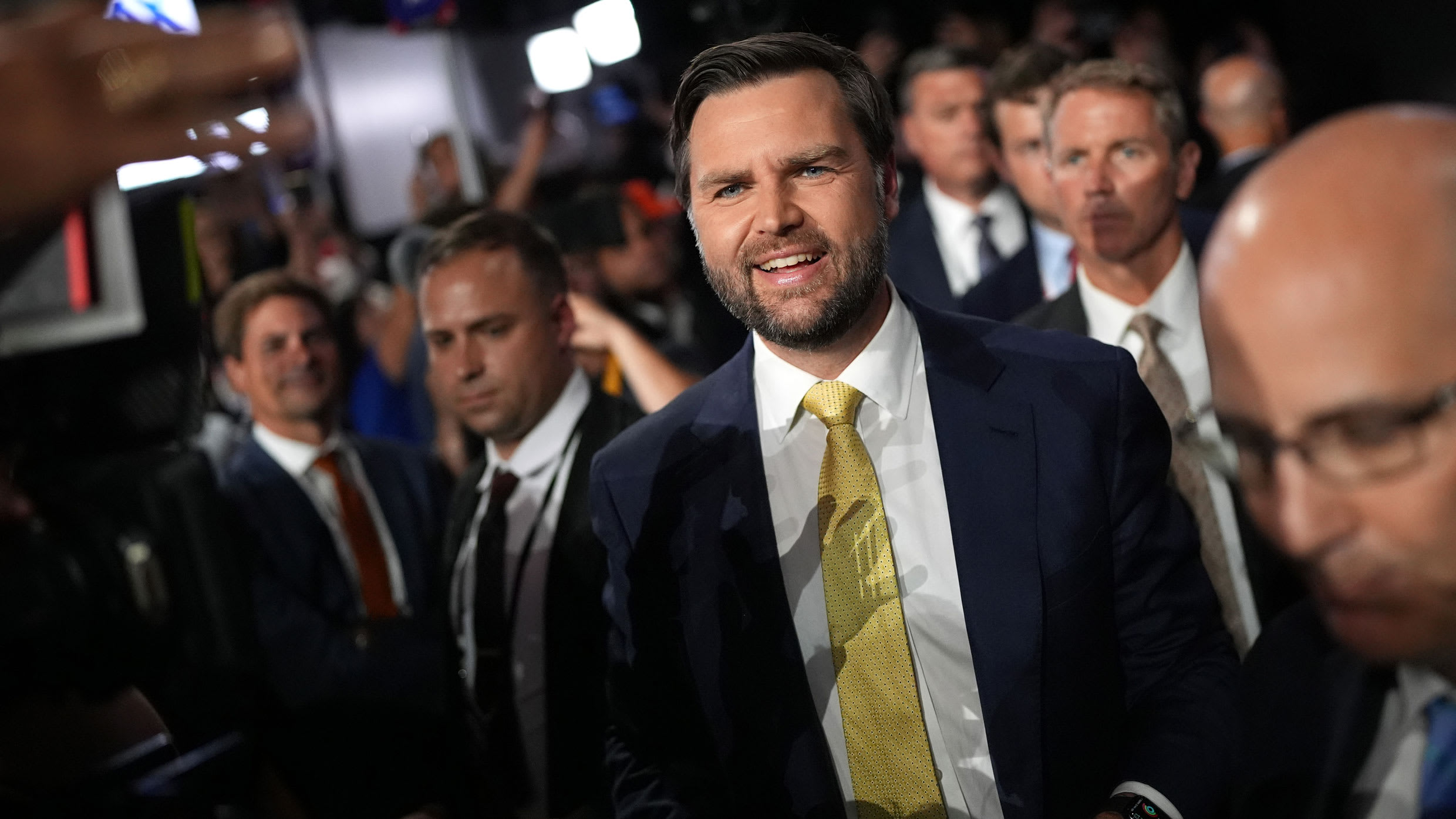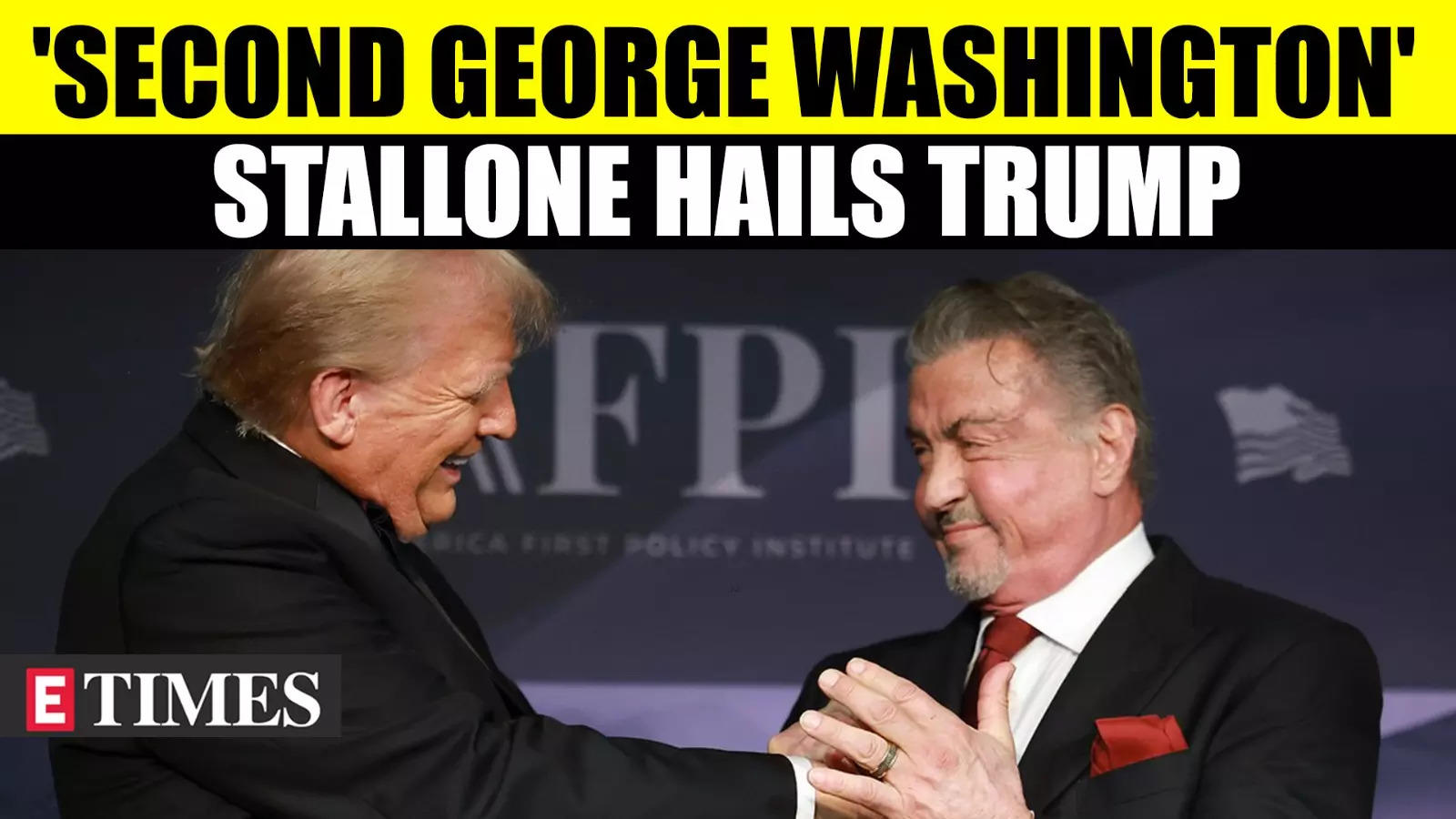When Teamsters president Sean O’Brien addressed the Republican National Convention yesterday, it was the first time a leader of the union—of any union, in fact—had taken the stage at the RNC. “President Trump had the backbone to open the doors to this Republican convention and that’s unprecedented,” he said in his speech, which was sharply critical of big business and corporate America.
While O’Brien did not explicitly endorse Trump, his speech signaled that the Republican party is attempting to court organized labor. The majority of unions have been steadfast in their support of President Biden, who has been a strong advocate for labor rights and unions. But the Teamsters have said they plan to hold off on any endorsements until after the Democratic National Convention (and a new Reuters report indicates the union may abstain from endorsing any candidate).
Senator J.D. Vance, who just joined the Republican ticket as the nominee for vice president, seems to be a key element of Trump’s populist campaign to secure the working-class vote. He first came to prominence in 2016 after writing his memoir, Hillbilly Elegy. In 2022, he was elected to the Senate, largely due to an endorsement from Trump.
Vance has also voiced support for unions, in a break from the traditional Republican platform. But while he has paid lip service to organized labor—and even made an appearance at the picket line during the autoworkers strike last year—his record and rhetoric on labor issues paints a very different picture.
Vance’s stance on labor law
In 2020, Vance claimed that he was “not a huge fan” of right-to-work laws, which make it significantly harder for workers to unionize across about half the states in the U.S. He has also denounced the growing reliance on “cheaper labor,” which he says has depressed wages for American workers.
But Vance has also opposed such legislation as the Protecting the Right to Organize (PRO) Act, which would address loopholes in labor law and expand protections for workers seeking to unionize. (Union leaders and prolabor lawmakers have spent years trying to get the bill passed.) Vance told Politico he did not support the PRO Act because the bill would codify collective bargaining in its current form, and that the U.S. should push for sectoral bargaining, or industry-wide organizing. (The PRO Act would not prevent sectoral bargaining, and labor advocates contend the bill could enable broader labor reforms.) Vance also rejected the bill for overtly political reasons: “I think it’s dumb to hand over a lot of power to a union leadership that is aggressively anti-Republican,” he told Politico.
In the meantime, however, Vance has cosponsored the Teamwork for Employees and Managers Act, reintroducing the legislation earlier this year alongside Senator Marco Rubio. The bill would effectively undermine labor unions by allowing voluntary “employee involvement organizations,” which would not be covered by collective-bargaining agreements and could be dissolved by an employer. Vance has also distinguished between “good unions” and “bad unions,” extending support to police unions while denouncing the union representing baristas at Starbucks, according to Politico.
During his time in the Senate, Vance has also rejected nominees to the Equal Employment Opportunity Commission and National Labor Relations Board (NLRB) who are seen as pro-worker and supported by labor unions. Earlier this year, Vance also voted in favor of a resolution to strike down the NLRB’s updated joint-employer rule, which would have given workers more leverage when organizing at companies—like Amazon—that rely heavily on third-party contractors, by forcing both employers to participate in labor negotiations.
How labor leaders have responded
It’s notable that labor leaders have been quick to come out against Vance, following the announcement yesterday. AFL-CIO president Liz Schulyer described the Trump-Vance ticket as “a corporate CEO’s dream and a worker’s nightmare.” In a post on X, Sara Nelson—international president of the Association of Flight Attendants—echoed that sentiment. “This ticket isn’t pro-worker or pro-union,” she wrote. “It’s the billionaire ticket through and through.”
April Verrett, president of the Service Employees International Union (SEIU), called out Vance’s connections to Wall Street and Silicon Valley and said that Trump and Vance “will seek to protect the wealthy and corporations while enacting their insidious Project 2025 agenda.” Trump has distanced himself from Project 2025, a collection of extreme policy proposals drafted by the Heritage Foundation, the conservative think tank, and Vance has yet to directly comment on the matter. The recommendations made by Project 2025—a collection of extreme policy proposals drafted by the Heritage Foundation, the conservative think tank—include, for example, prohibiting the collection of race and ethnicity data by the Equal Employment Opportunity Commission and reversing the effects of what the authors see as a “DEI Revolution” at the Department of Labor.
For now, Trump has publicly distanced himself from Project 2025, and Vance has reiterated that the project is not affiliated with the Trump campaign. But Vance has acknowledged “there are some good ideas in there,” and the architects of Project 2025 have already pledged their support for him. Kevin Roberts, president of the Heritage Foundation, told Politico that Vance “is absolutely going to be one of the leaders—if not the leader—of our movement.”
Recognize your technological breakthrough by applying to this year’s Next Big Things in Tech Awards! Extended Deadline to Apply: Friday, July 19.







